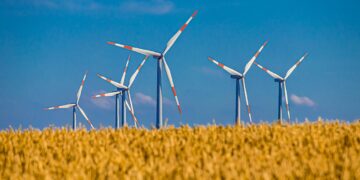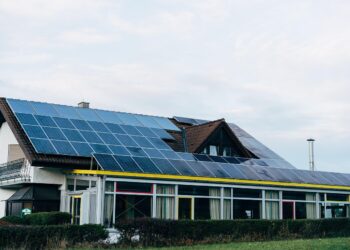Harnessing the Power: The Infinite Potential of Renewable Energy
As we stand at the crossroad of environmental consciousness and technological advancement, the shift towards renewable energy resources represents not just an option but a necessity to ensure a sustainable future. The exploration of renewable energy sources has escalated in importance due to the increasing concerns over fossil fuel depletion and climate change. This surge has led to widespread adoption and continuous innovation in the realm of renewable energies like solar, wind, hydro, and biomass.
Understanding Renewable Energy: An Overview
Renewable energy is derived from natural sources that continually replenish themselves over short periods. Unlike finite reserves of fossil fuels such as coal, oil, and natural gas, renewable resources include sunlight, wind, rain, tides, and geothermal heat. These sources not only promise an inexhaustible supply of energy but also a much cleaner alternative contributing significantly to reducing carbon footprints.
The Scope and Scale of Renewable Energy Sources
Solar Power
Solar energy, harnessed via photovoltaic cells and concentrating solar power systems, is one of the most prominent forms of renewable energy. Its applications range from small-scale systems for individual homes to large solar farms that power thousands of residences. The technology behind solar power is rapidly evolving, enhancing efficiency and storage capacities, thus making it increasingly cost-effective.
Wind Energy
Wind energy, captured through wind turbines, converts kinetic energy from wind into electricity. With options to establish onshore and offshore wind farms, this sector is experiencing dramatic growth, contributing significantly to global energy needs. Continuous advancements in turbine technologies have resulted in more effective and resilient systems, reducing overall costs and boosting output.
Hydropower
Hydropower utilizes the flow of water through turbines to generate electricity. It is one of the oldest and most mature sources of renewable energy. Today’s emphasis is not only on large-scale dams but also on smaller, less invasive run-of-the-river and pumped-storage projects, which help to balance the grid without significant ecological disruption.
Biomass Energy
This form of energy involves organic materials like plant and animal waste, which are converted into electricity, biofuel, and heat. Innovations in biomass can significantly reduce waste and greenhouse gas emissions, making it an essential component of the renewable energy landscape.
Impacts and Benefits of Renewable Energy
The adoption of renewable energy sources has profound positive impacts on both the environment and the economy. Environmentally, it leads to a significant reduction in greenhouse gas emissions, helping combat climate change. Economically, renewable energy creates jobs in new and evolving markets and decreases dependence on imported fuels, which can enhance national security.
Economic Growth Stimulated by Renewable Energy
The renewable energy sector has become a formidable force in job creation. According to reports, the renewable energy sector consistently outpaces traditional energy sectors in job creation, offering roles in manufacturing, installation, maintenance, and research and development. The growth is complemented by decreases in costs and increased accessibility of technology.
Enhancing Energy Security
By diversifying the energy supply and reducing dependence on imported fuels, countries can achieve a greater level of energy security and stability. Renewable energy provides an effective tool for rural development, as decentralized systems reduce the need for expensive grid extension.
Overcoming Challenges in Renewable Energy Adoption
Despite its potential, the path to widespread renewable energy adoption is fraught with challenges. These include technological limitations, high initial setup costs, intermittency issues, and the need for significant infrastructure changes. However, with continued research and investment, these challenges can be overcome, leading to more robust and efficient renewable energy systems.
Integrating Renewable Energy into Existing Grids
One of the significant challenges is integrating variable renewable energy sources like wind and solar into the power grid, which requires advanced grid management technologies and increased storage capacities. This integration is crucial for maintaining the reliability and stability of energy supplies.
Future Trends in Renewable Energy Technologies
Looking ahead, the future of renewable energy is bright with promising new technologies and strategies. Innovations such as floating solar panels and offshore wind turbines are setting the stage for the next generation of renewables. Additionally, advancements in battery storage technologies are solving intermittency issues, paving the way for a cleaner, more sustainable energy landscape.
Conclusion: Embracing a Renewable Future
The potential of renewable energy is limitless, and its benefits, both to our planet and to our economies, are substantial. By embracing this transition, we are not just participating in an environmental cause but also catapulting our technological prowess into a new era. The journey toward a fully renewable energy-powered society might be long and fraught with challenges, but the rewards promise a healthier planet and a sustainable model of living for future generations.
In summary, embracing renewable energy is imperative for sustainable development. Continued investments and innovations in this sector will undoubtedly lead to more efficient and economical solutions, making renewable energy the cornerstone of global energy systems.







